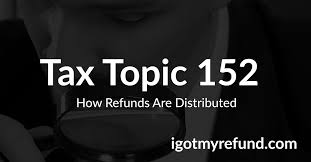Generally, work placements are like magic keys that help to unlock the door to real-world experiences in your field, but what exactly does work placement involve? What are the benefits of a work placement?
You may liken work placements to fantastic internships or opportunities where you get to shadow professionals in your areas of interest. This involves getting our hands dirty – in a good way, learning the ropes, and seeing what day in the life of your dream job is really like.
So, why are work placements beneficial? There are several benefits of a work placement, especially in one’s journey toward a successful career. Work placements offer a multitude of advantages that extend far beyond the confines of a traditional classroom.
In this piece, we’ll cover everything about work placement and its benefits.
Table of contents
- Are Work Placements Worth It?
- Do Employers Value Work Placement Experience?
- How To Find And Secure A Work Placement?
- Self-Assessment:
- Research:
- Network:
- Resume and Cover Letter:
- Application:
- Prepare for Interviews:
- Interview:
- Follow-Up:
- Consider Unpaid vs. Paid Placements:
- Prepare for Rejection:
- Use Career Services:
- Be Persistent and Proactive:
- Consider Alternative Options:
- Review Offer and Terms:
- Accept and Prepare:
- Learn and Network:
- Document Your Experience:
- What Should I Expect During A Work Placement?
- Benefits Of A Work Placement?
- Hands-On Experience
- Skill Development
- Industry Knowledge
- Networking
- Resume Enhancement
- Improved Confidence
- Employability
- References
- Exploration of Career Paths
- Practical Problem Solving
- Personal Growth
- Income Potential
- References for Further Education
- Improved Communication
- Job Opportunities
- Test-Drive Careers
- Exposure to Company Culture
- FAQs
- Conclusions
- References
- Recommendations
Are Work Placements Worth It?
Work placements are worth it. They’re like real-world learning experiences where you work at a company or organization for a while. They help you learn practical skills, understand how jobs work, and build connections with people in your field.
Plus, having work placement experience can make you more appealing to future employers when you’re looking for a job. So, yes, they can be very valuable for your career.
Also read: Can You Do a Placement Year After You Graduate? Top Tips
Do Employers Value Work Placement Experience?
Employers highly value work placement experience, and it holds significant weight in the hiring process. Work placement experience is so valuable to employers because of:
- Relevance: Work placement experience is directly related to the job you’re applying for. It shows employers that you’ve already been exposed to the type of work they need, making you a more attractive candidate.
- Practical Skills: During work placements, you gain hands-on experience and practical skills that are often not taught in a classroom. Employers appreciate that you can potentially start contributing to their organization from day one, reducing training time and costs.
- Industry Insight: Work placements give you a deep understanding of how a specific industry operates. You become familiar with industry-specific jargon, processes, and challenges. This knowledge is valuable because it minimizes the learning curve for you as a new employee.
- Networking: Work placements allow you to build a network of professional contacts. These connections can be invaluable for your future career, as they may lead to job offers or referrals.
- Problem-Solving Abilities: Through work placements, you develop problem-solving skills by tackling real-world issues. Employers appreciate candidates who can think critically and find solutions independently.
- Work Ethic and Professionalism: Being part of a work environment teaches you about punctuality, teamwork, and professionalism. Employers want individuals who can adapt easily to their workplace culture.
- Confidence: Work placements help boost your confidence. By completing a placement, you gain confidence in your abilities and are more likely to perform well in job interviews and at work.
- Evidence of Commitment: Having work placement experience on your resume demonstrates your commitment to your chosen career. It shows that you’re willing to invest time and effort in gaining relevant experience.
- Competitive Advantage: In competitive job markets, work placement experience can set you apart from other candidates. Employers are more likely to choose someone who has proven their abilities in a real work setting.
- References: Supervisors and colleagues from your work placements can provide strong references. Positive recommendations from professionals in the field can greatly enhance your job prospects.
- Adaptability: Work placements often expose you to various tasks and challenges. This demonstrates your adaptability and versatility to potential employers.
- Proof of Passion: Your willingness to seek out work placements in your chosen field showcases your passion and dedication. Employers value candidates who are genuinely interested in their industry.
Also read: Do You Get Paid for a Work Placement at University?
How To Find And Secure A Work Placement?
Finding and securing a work placement can be a rewarding but sometimes challenging process. Here’s a step-by-step guide on how to do it:
Self-Assessment:
- Identify your career goals and the type of work placement you’re looking for.
- Determine the skills you want to develop during the placement.
Research:
- Research companies, organizations, or institutions that offer work placements in your field of interest.
- Use online job boards, company websites, and career services at your educational institution.
Network:
- Attend career fairs, industry events, and seminars to connect with professionals in your chosen field.
- Use social media platforms like LinkedIn to network and seek opportunities.
Resume and Cover Letter:
- Create a professional resume and cover letter tailored to the specific work placement you’re applying for.
- Highlight your skills, relevant coursework, and any prior experience.
Application:
- Follow the application instructions provided by the company or organization.
- Pay attention to application deadlines.
Prepare for Interviews:
- Practice common interview questions and some questions you should ask at an interview.
- Research the company and be ready to explain why you want to work there.
Interview:
- Attend interviews with confidence, professionalism, and enthusiasm.
- Showcase your passion and eagerness to learn.
Follow-Up:
- Send a thank-you email after the interview to express your appreciation for the opportunity.
Consider Unpaid vs. Paid Placements:
- Be open to both paid and unpaid work placements, depending on your financial situation and the value of the experience.
Prepare for Rejection:
- Understand that rejection is part of the process. If you don’t secure a placement on your first attempt, keep applying and refining your approach.
Use Career Services:
- Many educational institutions have career services departments that can help you find work placement opportunities, review your resume, and provide interview coaching.
Be Persistent and Proactive:
- Don’t get discouraged by initial setbacks. Keep searching and applying.
- Consider reaching out directly to companies even if they don’t have advertised placements. Sometimes, they may create positions for enthusiastic candidates.
Also, read: How To Become A Social Worker? What Qualifications Do You Need?
Consider Alternative Options:
- If you’re struggling to find a traditional work placement, consider internships, part-time jobs, or volunteer opportunities related to your field. These can also provide valuable experience.
Review Offer and Terms:
- When you receive an offer, carefully review the terms, including the duration, responsibilities, and compensation (if applicable).
Accept and Prepare:
- Once you’ve secured a work placement, accept the offer promptly.
- Prepare by researching the company and familiarizing yourself with the role.
Learn and Network:
- During your placement, focus on learning, gaining experience, and building professional relationships.
- Seek feedback and take initiative in your tasks.
Document Your Experience:
- Keep a record of your accomplishments and the skills you’ve acquired during the placement. This will be valuable for your resume and future job interviews.
Also read: 10 Reasons & Benefits of Volunteer Work for Students
What Should I Expect During A Work Placement?
During a work placement, you can expect a dynamic and educational experience that combines learning with practical work. Here’s what you should anticipate:
- Orientation: You’ll likely start with an orientation session to familiarize yourself with the company, its culture, policies, and procedures. This may include workplace safety guidelines.
- Supervision: You will have a supervisor or mentor who will guide and support you throughout the placement. They will assign tasks, provide feedback, and help you learn.
- Tasks and Responsibilities: Your daily tasks will vary depending on the placement, but they will typically be related to your field of study or career goals. Expect a mix of observation, assistance, and hands-on work.
- Learning Opportunities: Work placements are excellent learning opportunities. You’ll gain practical skills, industry knowledge, and a better understanding of how the profession works in real-life scenarios.
- Networking: You’ll have the chance to meet and interact with professionals in your field. Building relationships with colleagues and supervisors can be valuable for future career opportunities.
- Challenges: You may encounter challenges or obstacles during your placement. This is normal, and it’s an opportunity for growth. Don’t be afraid to seek guidance when needed.
- Feedback: Expect to receive regular feedback on your performance. This feedback is essential for your professional development, so be open to constructive criticism and work on improving your skills.
- Teamwork: Depending on the workplace, you might work independently or as part of a team. Collaboration and effective communication are often essential.
- Professionalism: Maintain a high level of professionalism at all times. Punctuality, a positive attitude, and respect for company policies are crucial.
- Skill Development: You’ll have the chance to develop and hone various skills, including technical skills, problem-solving abilities, and time management.
- Exposure to Industry: Gain insights into the industry’s trends, challenges, and best practices. Understand how your role fits into the larger organizational structure.
- Responsibility: As you progress in your placement, you may be given more responsibilities and autonomy. This demonstrates trust in your abilities.
- Networking Events: Some companies organize networking events, workshops, or training sessions during placements. These can enhance your knowledge and connections.
- Duration: Work placement durations vary, but they often range from a few weeks to several months, depending on the program or company.
- Evaluation: Your performance may be evaluated periodically, and there may be a final assessment or review at the end of the placement.
- Documentation: Keep records of your tasks, accomplishments, and skills acquired during the placement. This information will be valuable for updating your resume and discussing your experience in future job interviews.
- Closing and Future Opportunities: At the end of the placement, you may have a closing session or discussion with your supervisor. This is an opportunity to express your gratitude and inquire about potential future opportunities with the company.
Also read: What is a Placement Year at University?
Benefits Of A Work Placement?
Work placements offer a wide range of benefits that can significantly impact your personal and professional development. Here are some of the key advantages of undertaking a work placement:
Hands-On Experience
Work placements provide you with practical, real-world experience in your chosen field. This hands-on experience is invaluable and allows you to apply what you’ve learned in a classroom setting to actual work situations.
Also read: What Does FHEQ Level 4 Mean? The Frameworks for Higher Education Qualifications of UK
Skill Development
You have the opportunity to develop and enhance a diverse set of skills, including technical skills, problem-solving abilities, communication, teamwork, and time management.
Industry Knowledge
Gain a deep understanding of your industry, including its trends, best practices, and challenges. This knowledge is essential for making informed career decisions.
Networking
Build a professional network by connecting with colleagues, supervisors, and industry professionals. Networking can open doors to future job opportunities and collaborations.
Also read: What are Credit Hours in College? How Does it Work?
Resume Enhancement
Work placements are impressive additions to your resume, demonstrating your practical experience and commitment to your field. They make you a more competitive candidate in the job market.
Improved Confidence
Completing a work placement boosts your confidence in your abilities and readiness for future employment.
Employability
Many employers value work placement experience when hiring. It can give you a distinct advantage over other candidates and increase your chances of securing a job.
References
Supervisors and colleagues from your work placement can serve as valuable references when you apply for future positions. Positive references can strengthen your job applications.
Exploration of Career Paths
Work placements offer a chance to explore different career paths within your field, helping you make more informed career choices.
Practical Problem Solving
You’ll encounter real challenges and problem-solving opportunities during your placement. Learning to navigate these situations enhances your problem-solving skills.
Personal Growth
Work placements can contribute to personal growth by exposing you to new environments, cultures, and perspectives. You may also develop greater independence and resilience.
Income Potential
In some cases, work placements may be paid, providing you with a source of income while gaining experience.
Also, read: Can You Work Full Time and Study Full Time in the UK?
References for Further Education
If you plan to pursue further education, having work placement experience can be valuable when applying to graduate programs or professional schools.
Improved Communication
You’ll likely interact with a variety of people during your placement, which can improve your communication and interpersonal skills.
Job Opportunities
Some work placements lead to job offers or at least an increased likelihood of being hired by the host organization after graduation.
Test-Drive Careers
It allows you to “test-drive” a career before committing to it long-term. This can help you confirm whether a specific field aligns with your interests and goals.
Also read: How Many Unauthorised Absences Are Allowed from School in the UK?
Exposure to Company Culture
You’ll experience the workplace culture of different organizations, which can help you identify the type of work environment you thrive in.
Overall, work placements are a powerful means of bridging the gap between education and employment, offering substantial benefits that contribute to your professional growth and career success.
FAQs
A work placement, also known as an internship or work experience, is a period during which you work at a company, organization, or institution to gain practical experience in your chosen field.
Work placements can be paid or unpaid, depending on the company or organization offering them. Some offer stipends or hourly wages, while others may not provide financial compensation.
The duration of work placements varies widely. They can last anywhere from a few weeks to several months, depending on the program, company, or industry.
Yes, many work placements are designed for students and are often a required or recommended part of educational programs. However, they are also available to recent graduates and individuals seeking career changes.
You can find work placements through various channels, including university career services, online job boards, company websites, networking events, and personal connections in your field.
Your application should typically include a resume and a well-written cover letter. Tailor these documents to highlight your relevant skills, coursework, and enthusiasm for the placement.
Conclusions
Work placements are undeniably valuable experiences that offer a multitude of benefits to individuals seeking to kickstart their careers or further their professional development. From practical skills acquisition to industry insights, networking opportunities, and enhanced employability, work placements serve as a bridge between academic learning and the real world.
References
- milkround.com – Work placement pros and cons
- ncirl.ie – Benefits of Work Placement
- indeed.com – What are work placements? (And the benefits of doing them)
Recommendations
- When is Student Volunteering Week in 2024?
- What are Credit Hours in College? How Does it Work?
- Top 17 Social Work Programs |Offline & Online
- IGCSE vs GCSE: Which is Harder and Why?
- The 10 Most Popular GCSE Subjects | Ranking
- Top-rated Maths Tutors | Maths Tutoring | Online
- How to Drop Out of College in the UK – Steps and Considerations
- 17+ Highest Paying Creative Jobs That Pay Well in the UK






